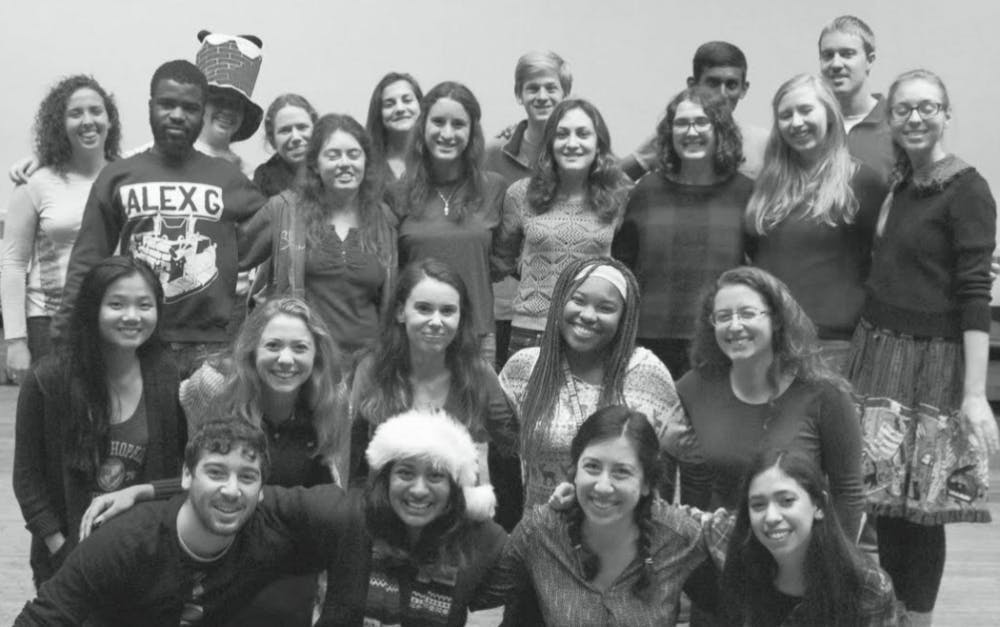Okay, I’ll admit it — like many college students, I was partially in it for the free food.
When I was a News & Features Editor at The News-Letter, Wednesday evenings were brutal — a long, mad dash to put the paper to bed before sunrise. The Gatehouse’s heavy door was a portal to a place past exhaustion, where a manic giddiness usually set in while my editor friends and I stared blankly at an InDesign page that refused to lay itself out.
Luckily, we were well fed. Gertrude’s, up the street at the Baltimore Museum of Art, catered dinner in exchange for ads. I don’t know who came up with the idea, but whoever it was, they’d hit gold. Yes, being student journalists left us bleary-eyed, but a fancy-ish burger or crab cake was a surprisingly powerful motivator to keep at it.
I’m telling this story because, in the “real world,” working in the media business isn’t too dissimilar from working on a college newspaper (like I did for two years as an undergrad). In an industry under siege, it’s the small things, when added up, that matter.
And it is an industry under siege. Publishers are competing for a shrinking slice of advertising dollars (historically their largest source of revenue), while a growing share flows to technology companies like Facebook and Google. With budgets under stress, newsroom employment fell nearly 25% between 2008 and 2019, according to a Pew Research Center analysis. And that was before the pandemic. Since last March, media companies have laid off tens of thousands of employees, with no end in sight.
The waters haven’t exactly been placid for student journalists either. College newspapers need revenue, too, to pay for paper and ink and more — from iMacs and cameras to content management systems and the Creative Cloud. And while they don’t have to pay their staff, there’s a growing recognition that the media lags in critical measures of diversity, equity and inclusion in large part because of the barriers to entry that handicap low-income students and recent graduates.
Fortunately, the news isn’t all bad. The media business may be tough, but tough problems attract smart problem solvers, and worthy causes attract well-meaning people. My colleagues at The Atlantic know that journalism is essential to democracy, and that every reader, subscriber or partner they reach is a victory for a noble cause. That’s a built-in advantage that can’t be discounted.
For many journalists, the past year has been among the most challenging of their careers, and yet their reporting and analysis and humanity has been extraordinary in the face of a global pandemic; a long-overdue national reckoning with race; and a momentous election and its aftermath. Moments in history like this demonstrate why independent journalism is so important. Power must be held to account, even when it’s solicitous — and especially when it’s not. And student journalists, who have been covering their campuses and COVID-19 with aplomb, have no less of a role to play.
So, a call to action. Or two. First, if you care about your alma mater, your alma mater’s local community or both, you should care about student journalism. And if you care, you should lend a hand. Support your student newspaper with a donation if you can. Offer your advice and counsel to current students. Administrators don’t exactly have an interest in nurturing a strong, independent campus watchdog, so it’s up to students, alumni and community members to lead the way.
Second, if you’re a student interested in journalism, know that even in an industry in transition, you can make it. There are also more kinds of jobs in the media business than you might be aware of. Yes, you can be a writer or an editor, but you can also be a producer, a product manager, an engineer, an audience researcher, a business strategist and far more. If you’re a Public Health major, you can contribute to an effort like The Atlantic’s COVID Tracking Project. Whatever your interests, there’s probably a place in media for you.
So, don’t give up when you’ve been staring at a blinking cursor on a blank page for too long. Ask for help, take a walk and keep at it. Your work is essential, and your cause is noble. Onward!
Ben Schwartz, KSAS Class of 2016, is a former news and features editor for The News-Letter. He works for The Atlantic’s business operations team in Washington, D.C.





